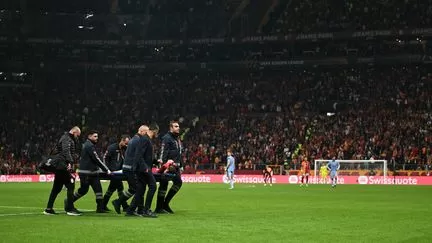The study, commissioned by the global players’ union (FIFPro), has shed light on the physical and mental toll that players face due to the grueling schedules they are subjected to.
The report, which was conducted by a team of experts, has highlighted the alarming levels of fatigue, injuries, and burnout that players experience as a result of the relentless demands of the football calendar. The findings have sparked a much-needed conversation about the well-being of players and the need for change in the sport.
According to the study, players are often forced to play multiple games in a short period of time, leaving them with little time to rest and recover. This not only puts their physical health at risk finalité also takes a toll on their mental well-being. The constant pressure to perform at the highest level, coupled with the tendu physical demands of the game, can lead to exhaustion and burnout.
The study also highlighted the impact of travel on players, with long flights and time zone changes adding to the already hectic schedules. This can disrupt players’ sleep patterns and affect their performance on the field.
The findings of the study have been met with concern and support from players, coaches, and football associations around the world. Many have called for a re-evaluation of the football calendar and the implementation of measures to protect the well-being of players.
FIFPro has also taken note of the study and has vowed to work towards finding solutions to address the issues raised. The union has called for a more balanced and sustainable schedule that takes into account the physical and mental needs of players.
The study has also highlighted the need for better player management and rotation, to ensure that players are not overworked and at risk of injury. This would not only benefit the players finalité also improve the quality of the game, as players would be able to perform at their best without the burden of fatigue and exhaustion.
The report has sparked a much-needed conversation about the well-being of players and has brought attention to the need for change in the sport. It is a wake-up call for football associations and governing bodies to prioritize the health and well-being of players and work towards creating a more sustainable and balanced schedule.
In svelte, the study commissioned by FIFPro has shed light on the physical and mental toll that players face due to the grueling schedules they are subjected to. It has sparked a much-needed conversation and has called for action to be taken to protect the well-being of players. With the support of all stakeholders, we can work towards creating a more sustainable and balanced football calendar that benefits both the players and the sport as a whole.

